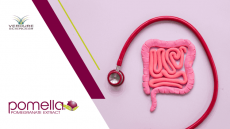South African association putting native herbals on the map

The association, which so far comprises 17 members of Africa's rapidly expanding botanical products industry from across South Africa as well as Namibia, the USA and Canada, aims to create a connected, compliant and affluent supplements industry for a region which has previously been hindered by regulatory barriers to market access.
“There are plenty of promising candidates waiting to be kissed awake with the primary hinderance so far being regulatory barriers to market access,” said Dr Thomas Brendler, SABPA’s head of regulatory affairs and CEO of U.S.-based Plantaphile, a consultancy specializing in licensing herbal products as medicines.
“Ingredients from the region started to arrive in first world markets during colonial times—with ingredients such as aloe and buchu— then through entrepreneurs at around the beginning of the 20th century with rooibos, honeybush, devil’s claw, umckaloabo and uzara.
“And finally, with an increasingly high fail rate, in the second half of the 20th century, came ingredients such as hoodia and sceletium. What’s the problem? Barriers of entry mainly due to ever more demanding regulatory frameworks, which render even the remaining pathways economically unfeasible.”
With a key focus on raising awareness and developing markets for products in local and international markets, the association has high hopes for its native and increasingly popular ingredient Mesembryanthemum tortuosum—aka Sceletium tortuosum; sceletium, kanna— a succulent plant in the Aizoaceae family native to the Cape Provinces of South Africa.
Sceletium has moved into the focus of both academia and industry for its potential in the treatment for depression and anxiety, to promote well-being and provide stress relief.
“Starting around 2018, interest has increased steadily,” said Dr Brendler, adding that the U.S. market is currently showing the most rapid growth.
The herbal expert conducted his own study of the market in 2021, which reported roughly 25 products containing "all kinds" of sceletium preparations.
“The full spectrum of offerings is present, from responsible, ethical and high quality all the way to the opposite (another reason why we deem it so important to provide sceletium preparations with a solid regulatory base)," Dr Brendler said. "Being late to the party, sceletium hasn’t had an easy start from a regulatory point of view. This also explains its obvious absence from the EU marketplace, which given its efficacy potential is very sad indeed.”
With this specific ingredient in mind, the SABPA is establishing an industry code of conduct aiming to ensure quality products, along with a quality seal to increase consumer confidence. Its proposed code has already been shared with members, with an official process to establish quality seal by the end of 2024.
Other primary aims for SABPA will be to: Achieve GRAS (Generally Recognized As Safe) affirmation for the intended conditions of use in the U.S. for various preparations manufactured by its members; conduct Foreign Supplier Verification Programs (FSVP) compliance audits for exporters into the U.S. market for food ingredients under the Food Safety Modernization Act (FSMA); and develop an industry-wide benefit sharing agreement to enable its members to become compliant under the NEMBA legislation of the Department of Forestry, Fisheries, and the Environment (DFFE).
Continuing its efforts to create trust and transparency, the association will look to standardizing analytical testing in order to provide growers, processors, traders and brand owners with the certainty that they are working with good quality raw material and processed products—specifically, through a viable, multi-lab validated quantitative assay and a suite of pharmacopeial monographs.
SABPA intends to expand its services to other producers, processors and users of South African indigenous biological resources that fall under the NEMBA legislation to support on aspects such as market access and ABS compliance. Such resources to be included under the SABPA umbrella include: Pelargonium sidoides, Aloe ferox, Harpagophytum spp., Xysmalobium undulatum, Lippia javanica, Myrothamnus flabellifolia.
Funding and membership
SABPA recently received funding from the Swiss Secretariat for Economic Affairs, managed by the German Governments Entity for International Cooperation (GIZ) under its ABioSA programme with its aim to develop the sceletium sector along with other indigenous biological resource (IBR) sectors.
The AGM elected Board of Directors includes: Ulrich Feiter, Parceval (Pty) Ltd, chairman; Avril Harvey, Parceval (Pty) Ltd, secretary and treasurer; Ferdinand Labuschagne, Karoo Kanna (Pty) Ltd, leading membership and business development; Dr Thomas Brendler, Plantaphile (Pty) Ltd, head of regulatory affairs; Prof Marietjie Stander, University of Stellenbosch and Suzette Trevor, Doehler South Africa (Pty) Ltd, projects and subcommittees.











